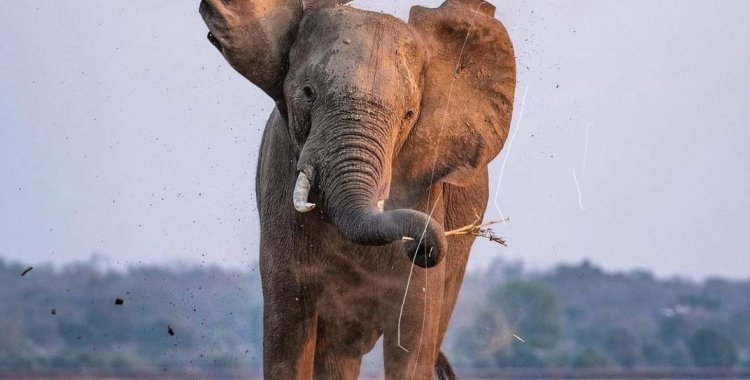In total, a group of 30 elephants that had previously lived on the other side of the border, in another private reserve, Mount Etjo Safari Lodge, which has more than 8,000 animals, will be relocated to Cuatir (in the province of Cuando Cubango). Speaking to Lusa, the head of Cuatir, Stefan Van Wyk, stressed that this is the first time in 50 years that elephants have returned permanently to the country, due to the prolonged civil war that decimated much of the wildlife. The conservationist explained that Namibia has been experiencing a drought for almost five years in the Okonjati area and that food has become scarce in the reserve, leading to the need to relocate some animals. “We started preparing for this movement a year ago,” said Van Wyk, highlighting that Cuatir has “sufficient food, clean water and until 1974 it had the largest elephant area in Angola.” In the Angolan wildlife reserve, which covers 40,000 hectares, the elephants have access to an area of 20,000 hectares and will live alongside gungas, kudus, impalas, red antelopes and other antelopes, zebras, giraffes and several other species that have been reintroduced over the years.
About 1,500 kilometres from Luanda, between the Cubando and Cuíto rivers, Cuatir has been developed by the Namibian conservationist who discovered the site in 2012 and aims to make it the largest private park in Africa.
Two more trips are planned to bring the remaining animals from the herd, and it is estimated that the group will be reunited in Angola by the end of this month.
The elephants were captured on the 5th and arrived in Cuatir 48 hours later, travelling 700 kilometres of roads, dirt and sand, in special containers adapted for these mammals.
A week later, Stefan Van Wyk said that the elephants “are very happy”. “They don’t walk much, they find food and water easily and we see them every day”, he said, adding that “little by little, they will explore better” their new habitat.
In a statement, the owners of Mount Etjo Safari Lodge, Alexander and Annette Oelofse, reported that the decision was motivated by the need to manage the wildlife population in the area, which exceeded the carrying capacity of the area due to the current drought.
“The relocation was essential to avoid further stress to the elephants and the local ecosystem. In the coming weeks, 10 to 20 more animals will be relocated”, they stressed.
The transport and relocation of the animals was ensured with the support of the Angolan and Namibian authorities, as well as veterinary teams that accompanied the operation.
“Mount Etjo Safari Lodge remains committed to the preservation and protection of wildlife. This relocation effort underlines our dedication to maintaining ecological balance and ensuring that future generations can enjoy the beauty and diversity of Africa’s wildlife,” the officials highlighted.







